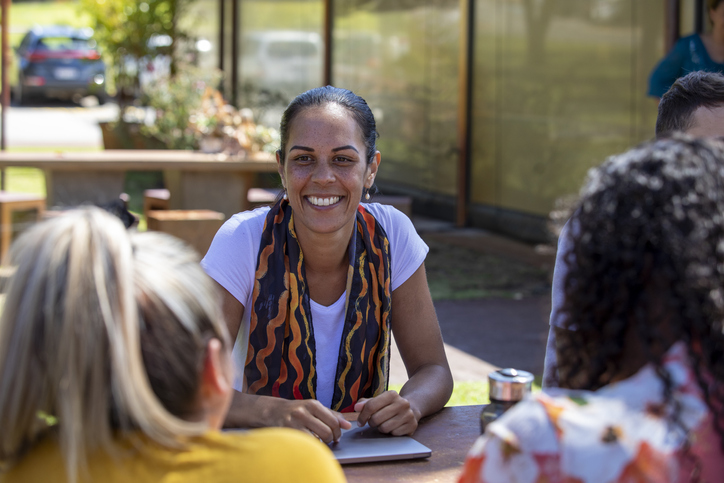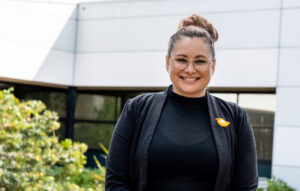
Breaking down barriers to education, training and career opportunities could be the key to cultivating home grown talent and career progression for Aboriginal and Torres Strait Islander youth in the local health workforce in Northern Territory.
The Ramaciotti Regional and Remote Health Sciences Training Centre (The Centre) based at Menzies School of Health Research in Darwin, Northern Territory (NT) has been running a pilot pathways program since 2020 with around 100 youth and students engaging in the program during that time.
The Centre works in collaboration with existing programs, initiatives, and organisations to offer scholarship funding, vocational placement opportunities and mentorships to Northern Territory youth to offer them a transition into health and health sciences study, and workforce placements.
A new $$506,978.40 research project funded by MRFF, ‘Assessing the impact of a transferable and adaptive health sciences training model in the Northern Territory: An evaluation of the Ramaciotti Regional and Remote Health Sciences Training Centre’ led by Associate Professor Kalinda Griffiths will evaluate the impacts and outcomes of the Centre’s pathways program on youth, students and staff.

The research will identify the education and training needs in the Northern Territory so that an improved education framework for youth and students in remote Northern Territory can be developed, says Associate Professor Griffiths, Director, Poche SA+NT, College of Medicine and Public Health.
“In regional and remote areas of Australia, hurdles to education are exacerbated by the unique Northern Territory environment. This project provides a unique opportunity to assess the impact of The Centre so we can better address the intersecting and cumulative needs of students in that region. Importantly, it will also work to improve the health and wellbeing outcomes of Aboriginal and Torres Strait Islander peoples.
“The Centre is Aboriginal and Torres Strait Islander led with co-designed governance. It leverages existing partnerships with communities, schools, training organisations and employers to deliver high-quality training and education in health sciences and related fields. Through identifying the dynamics of these partnerships and related programs, this project will provide important information about the barriers and enablers for youth and students into, and completing, pathway programs across the Northern Territory,” says Associate Professor Griffiths.
The research will combine quantitative and qualitative approaches to explore what the gaps, and needs, are in health workforce training and education in the Northern Territory. It will also explore how The Centre currently supports education and training for youth and the impact it has had on youth, students, and staff.
“We want to understand how The Centre is helping to build capabilities in education and training, as well as how it helps young people transition from study to work. With this information we will be able to provide a baseline for how education and training can impact the life trajectories of young people in the Northern Territory and identify what will be most successful going forward,” adds Associate Professor Griffiths.
The Centre has been co-designed by Aboriginal and Torres Strait Islander and non-Indigenous leads with central values of equity, reciprocity, self-determination, mutual support and trust.
The research project will be guided by the same values and is underpinned by Aboriginal and Torres Strait Islander ways of being, knowing and doing, that seek to acknowledge the historical, present, and ongoing impact of colonisation on Aboriginal and Torres Strait Islander peoples, cultures, and lands. This includes challenging and resisting dominant epistemologies and methodologies, and privileging Aboriginal perspectives, experiences, and knowledge systems.
The project is being supported by funding from the Australian Government’s Medical Research Future Fund’s (MRFF) Indigenous Health Research Fund (IHRF) and involves other researchers from Flinders University, Menzies School of Health Research and University of Melbourne.
The authors acknowledge the traditional lands in which this Correspondence was created and shaped (Kaurna Yerta, Ngarrindjeri Ruwe, Ngaiawang, Ngawait, Nganguruku, Erawirung, Ngintait, Ngaralte, Ngarkat, Luiseno, Cahuilla, Cupeno, Kumeyaay and Northern Diegueño Nations) and pay respect to their Elders, past, present, and emerging.
The Medical Research Future Fund (MRFF) is providing grants of financial assistance to support health and medical research and innovation, with the objective of improving the health and wellbeing of Australians.

